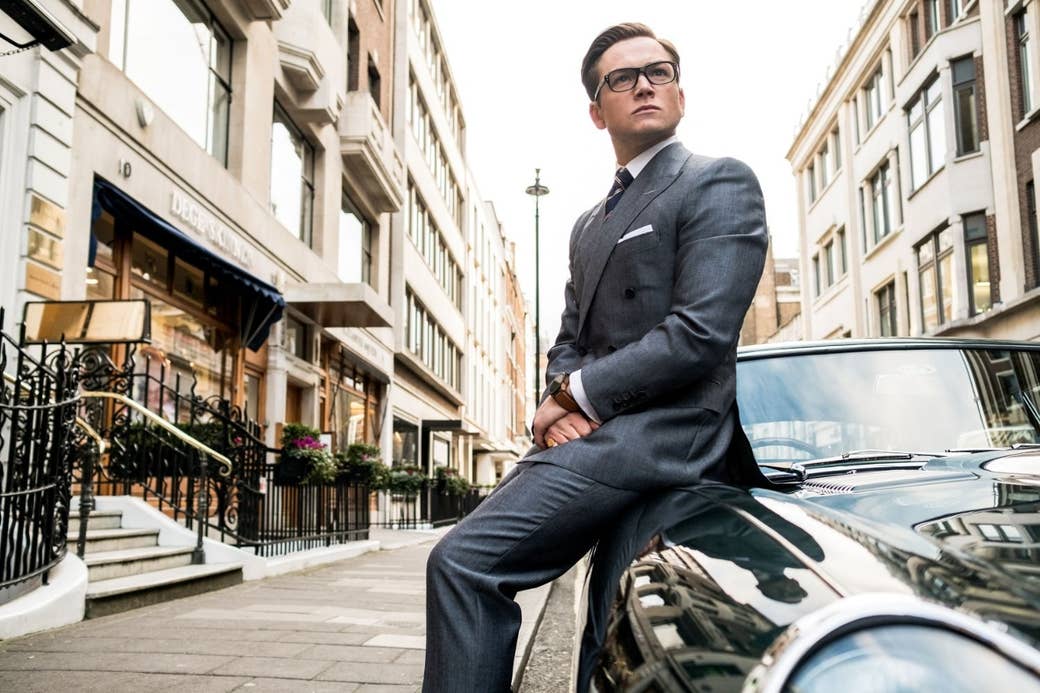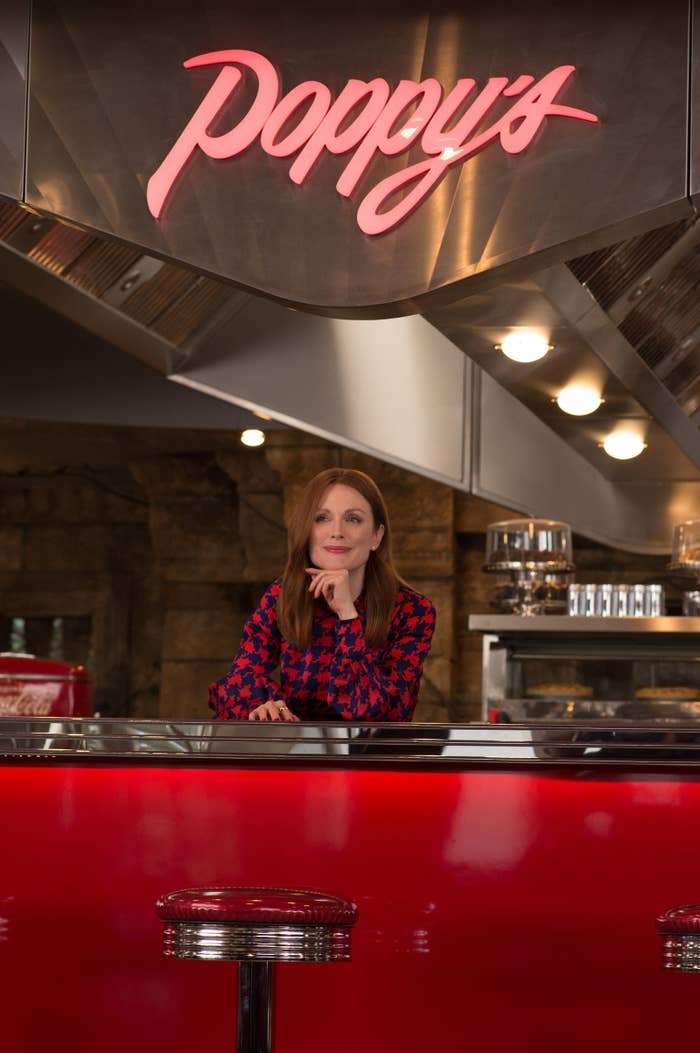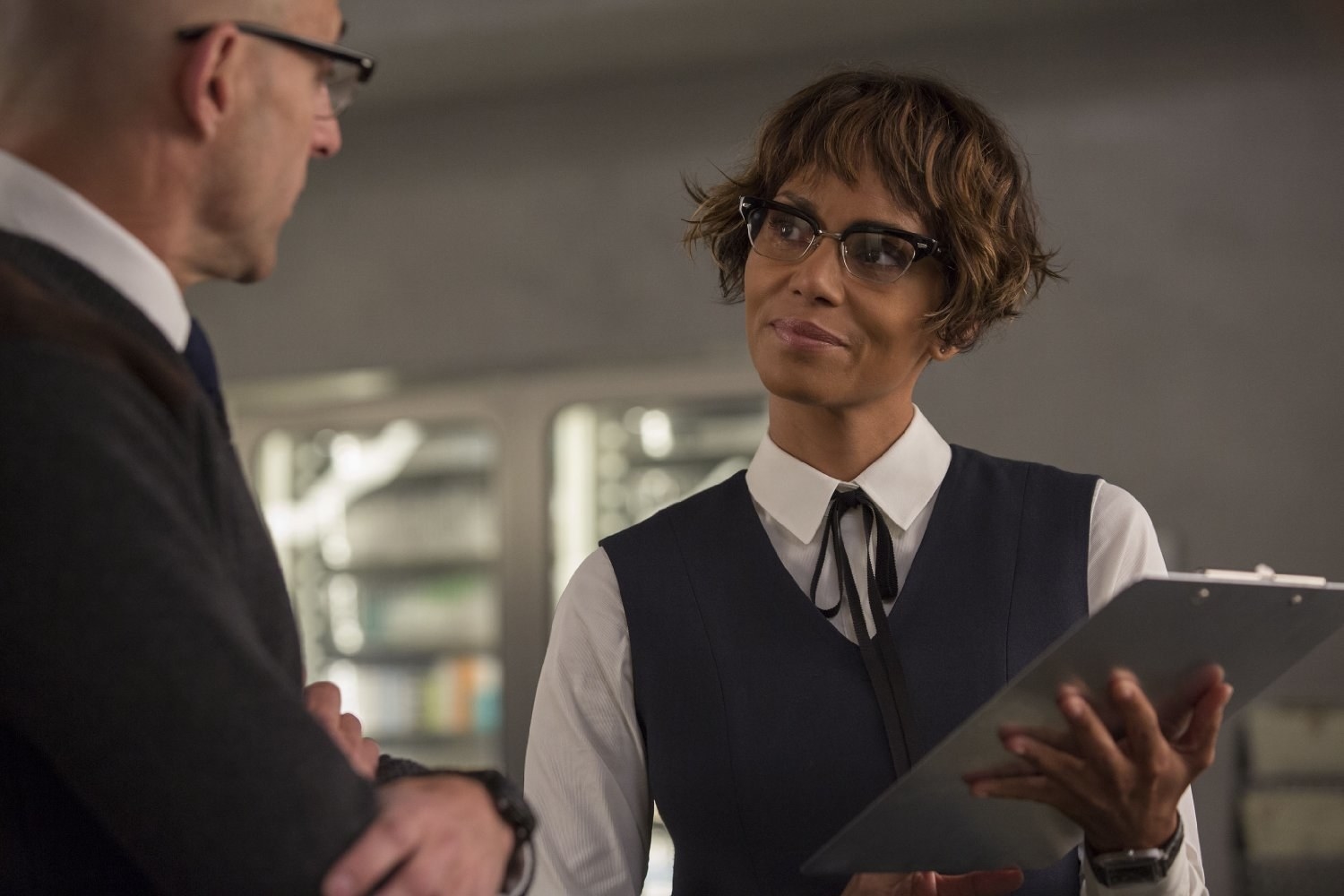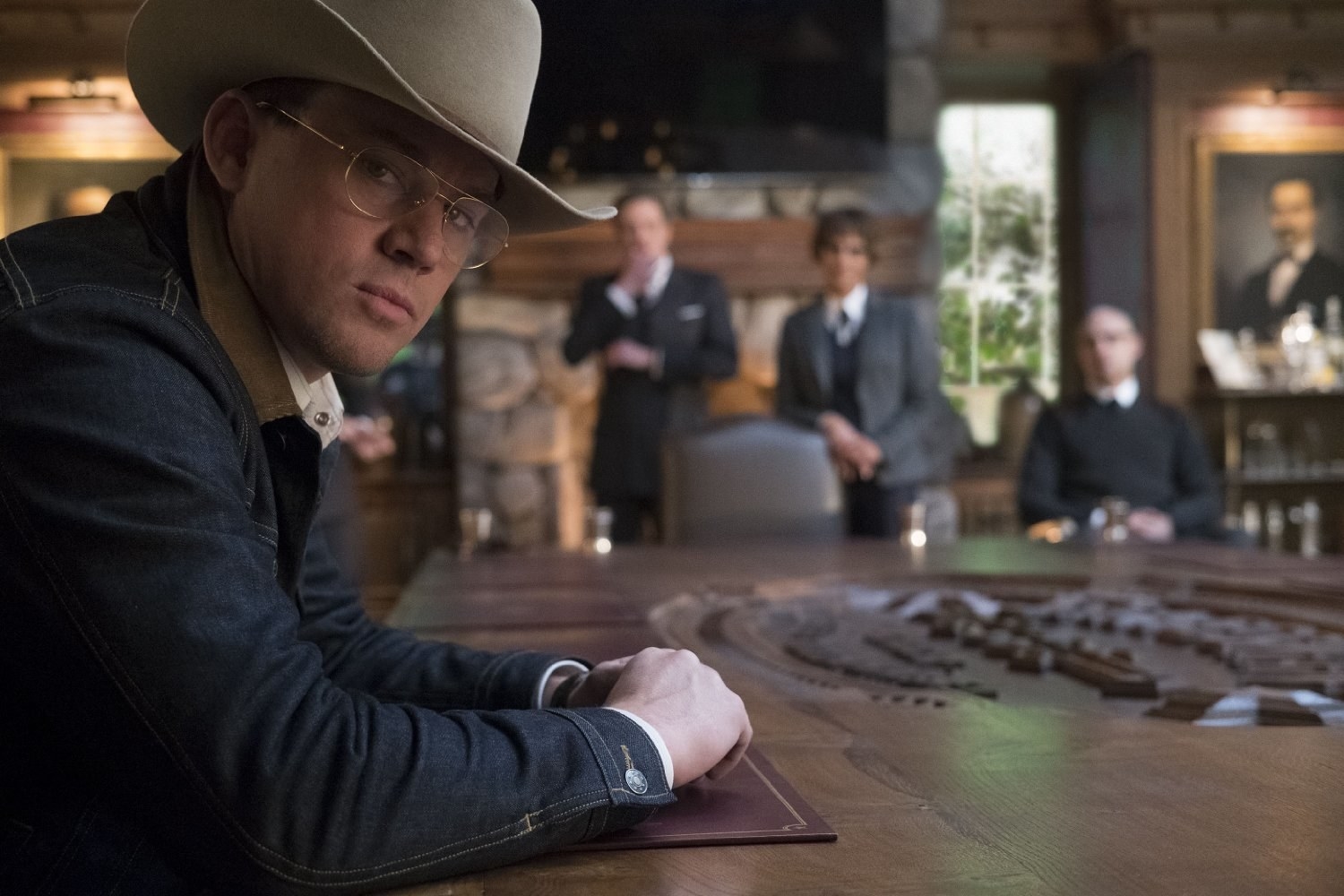
The new sequel Kingsman: The Golden Circle is a far better-behaved movie than the first Kingsman. Yet somehow, this makes it so much worse.
Say what you will about the first installment of what's now a whole secret agent–spoofing action franchise — but at least it had the guts to commit to the snickering nihilism that emerged as its defining quality. 2015's Kingsman: The Secret Service gleefully massacred the Westboro Baptist Church for kicks, blew up the head of then-president Obama as part of an apocalypse-averted punchline, and concluded with a gag about anal that didn't skewer the sexual politics of vintage James Bond flicks so much as just restate (and relish) them in blunter terms. The film began as an energetic, rude riff on the sacrosanct brand of Britain's most famous fictional spy and ended up somewhere in the realm of South Park humor, except crueler and more horny. Whatever good times it offered were the good times of drinking with fun strangers at a bar who are almost certainly going to beat you up later in the night.

The new movie doesn't want to sell you such uneasy entertainments. Subtitled The Golden Circle, the sequel is more intent on selling you some movie tie-in whiskey instead, and maybe also some movie tie-in shaving products. Like the first film, The Golden Circle is directed by Matthew Vaughn, who cowrote the script, based on a Mark Millar and Dave Gibbons graphic novel, with frequent collaborator Jane Goldman. And like the first film, the new Kingsman stars Taron Egerton, engaging and always a little too sweet-faced for the material, as Eggsy, a gifted working-class kid who shakes up the upper-crusty traditions of a secret spy ring, hidden away behind a London tailor shop and operating conveniently unfettered by government oversight.
Not that the secret spy ring gets much screentime as a functional organization in The Golden Circle. Like The Secret Service, the sequel is less interested in showing how Kingsman operates than in exploring what happens when it gets blown up — literally: The new baddie, a ruthless drug kingpin and dedicated '50s nostalgist named Poppy (Julianne Moore, in what's just one of her two unhinged retro housewife roles this fall), wings a bunch of missiles at the facilities early in the film, forcing Eggsy and chief tech support Merlin (Mark Strong) to seek help from a sibling organization in the US, a group that turns out to be called, appropriately, Statesman.
Statesman is based in Kentucky, and their cover operation is considerably more expansive than a bespoke tailoring operation — it's a bourbon distillery that happens to be massively successful (a convenient plot development). Their members, Tequila (Channing Tatum), Whiskey (Pedro Pascal), and Champagne (Jeff Bridges), eschew the tailored suits for more casual wear, falling stylewise into a blurry area between "cowboy" and "oil baron," and wielding shotguns, bullwhips, and electric lassos.
If Kingsman was an institution delineated by class, Statesman is an institution delineated by...nothing in particular, at least as far as The Golden Circle's toothless take on US iconography and social realities goes. When, for example, Ginger Ale (Halle Berry), Statesman's equivalent to Merlin and the lone black and female member we see, talks about how she gets blocked whenever she tries to become an active agent, the movie never bothers to explain why.
Then again, it doesn't really have time to. The Golden Circle all but invites the audience to speculate as to how few days some of its cast members actually spent on set. Elton John appears in an extended cameo as himself, and it feels like he racks up more time onscreen than some of the actual higher-billed actors. Famous faces show up onscreen and then vanish for long stretches; surviving characters from the first film get offed with barely a shrug; and one who died gets resurrected in just as desultory a fashion.

It's not a spoiler that Colin Firth's Harry Hart turns up alive in The Golden Circle (he's in the trailer) and it's not worth spoiling how it happens, simply because his killing gets undone with the screenplay equivalent of a hurried hand wave. Firth, with his crisp accent, the crisper line of his suits, and his surrogate-father air, was a highlight from the first film, and his presence is felt at the start of the second. But his return plays like a haphazard and undisguised act of fan service, just as the incorporation of Princess Tilde (Hanna Alström) into a larger role comes off like an awkward attempt at fan appeasement — an attempt to fend off anger at how this woman was turned into a butt-fucking punchline in the first film by having the main character now ready to put a ring on it in the second (what a wealth of meanings the movie's title holds!).
If the first Kingsman was a work of lol-nothing-matters provocation with a real mean streak, the second is a work of lol-nothing-matters laziness, a follow-up that fits in a few stylish action set pieces, but can't be bothered to invest in its own fictional world. The developments that do have potential, like Polly's devious plan to make herself a legitimate businesswoman by forcing an end to the war on drugs, become all the more frustrating because the way they unfold is so slapdash, especially in line with the movie's merchandising aims.

And nothing else is given the attention the branded liquor receives. Statesman bourbon is already available to purchase and was apparently chugged by Berry at Comic-Con as part of a promo stunt. It's given loving attention in multiple scenes throughout the film, to the point where its existence is important to the confusing final act of the movie, in which there's a betrayal that seems to take place only to skirt having to put Moore in a fight scene. It's all in service of what Vaughn told the New York Times he considers "the future of advertising," "authentic storytelling with the product in there," not real-life products being wedged into a fictional movie but a fictional product making its way to real liquor store shelves. Maybe this would feel less egregious in a more coherent movie — like the first Kingsman, which, in all its misanthropy, didn't play like a clothing ad despite the fact you could buy its clothes. But in The Golden Circle, the sales pitch feels impossible to ignore, a development more cynical than any of the first one's juvenile jokes.
